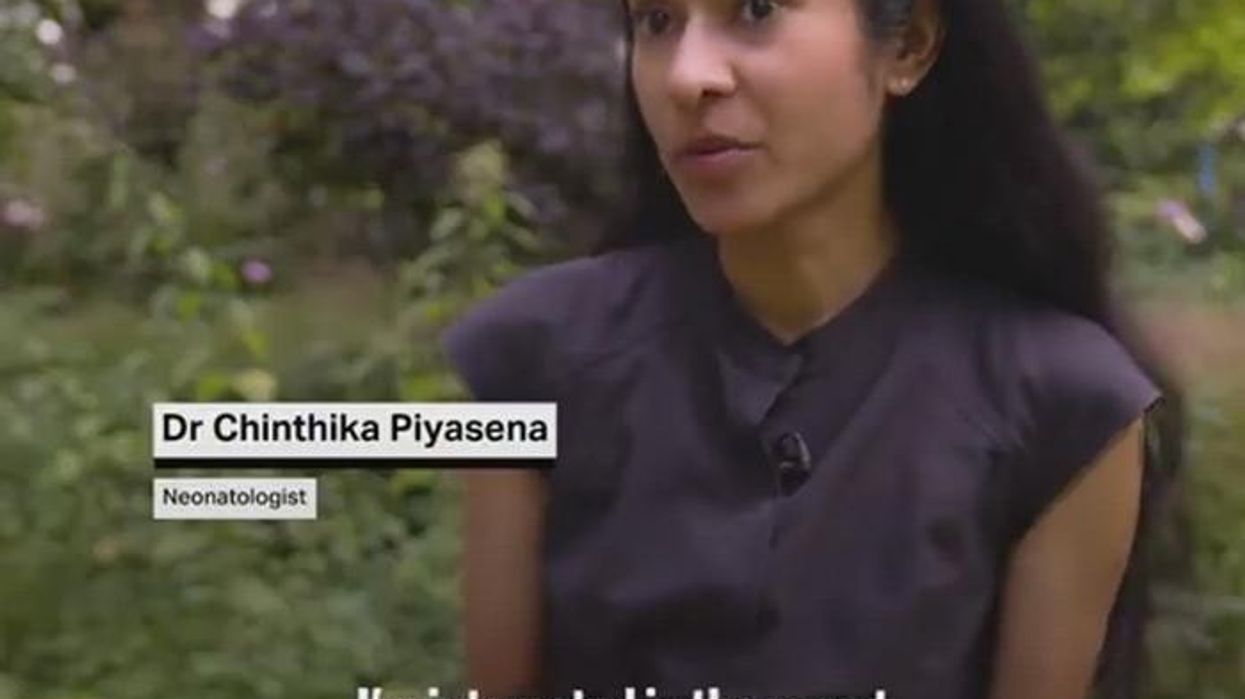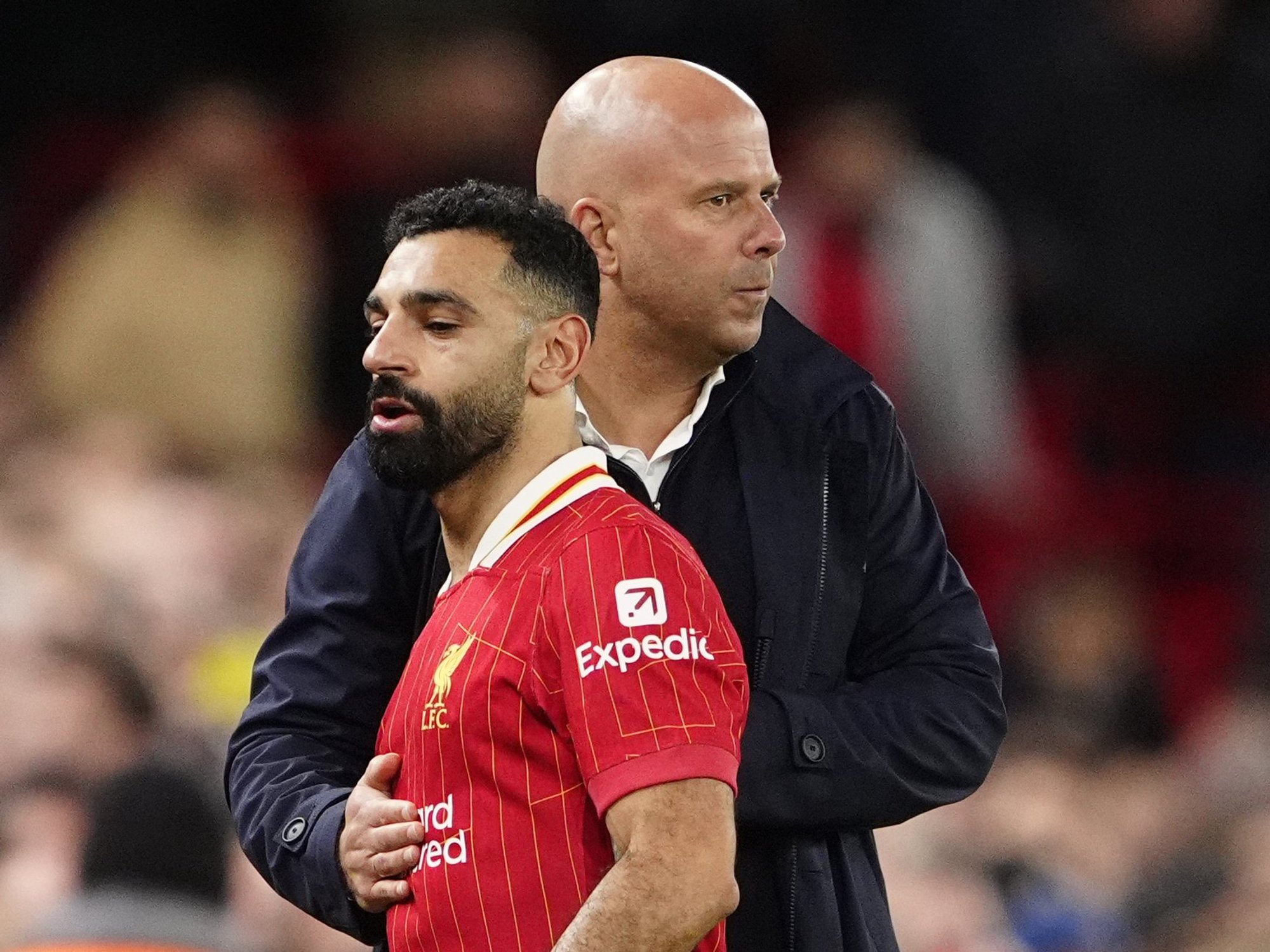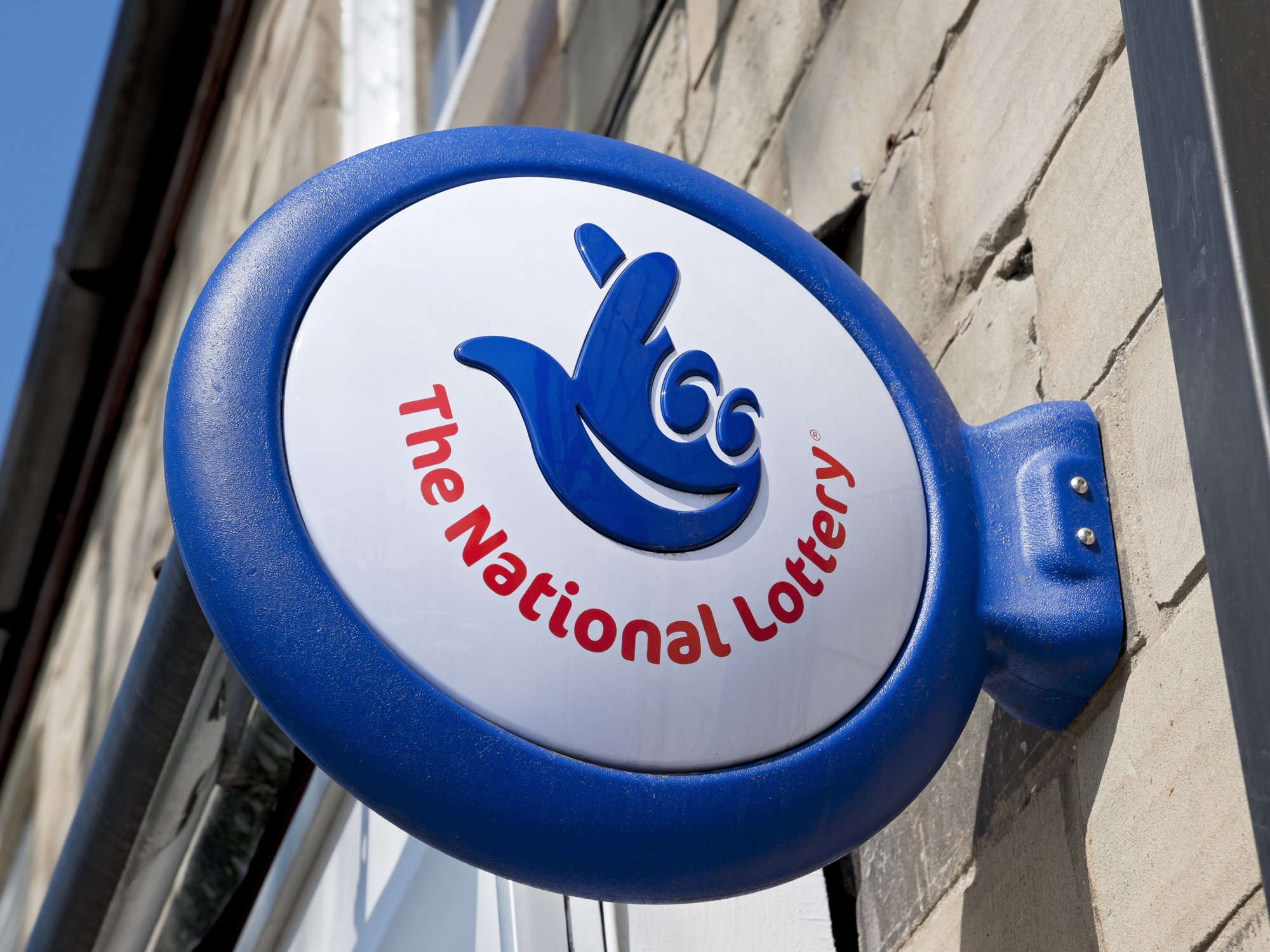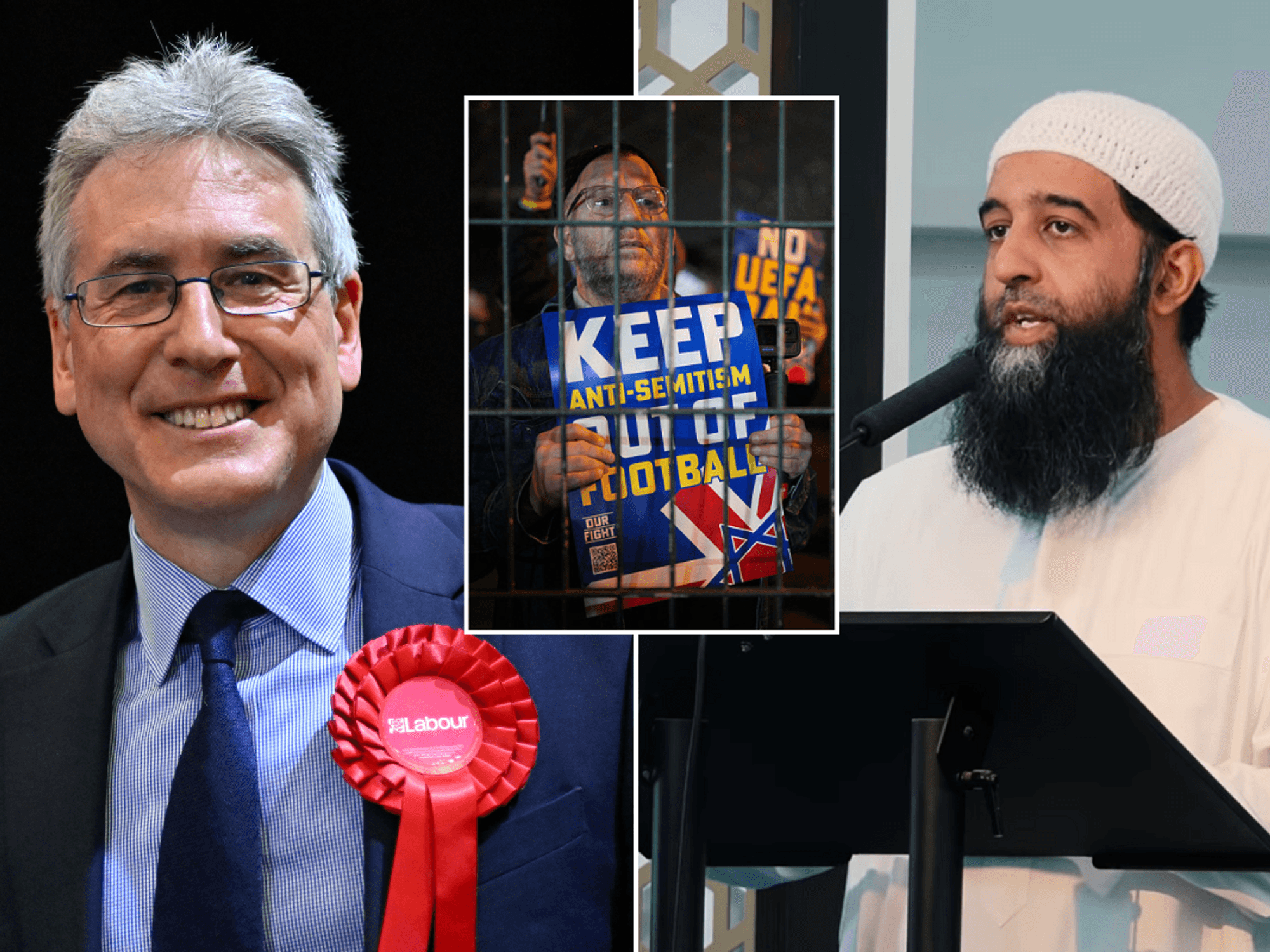Sadiq Khan gloats as Ulez sees thousands of petrol and diesel cars scrapped

The Ulez scrappage scheme saw 35,000 vehicles removed from London streets
Don't Miss
Most Read
Latest
Sadiq Khan has claimed a major victory as more than 53,000 older, polluting vehicles have been removed from London's roads through his Ulez scrappage scheme.
A new Transport for London report revealed the scheme successfully removed 35,094 cars and 17,964 vans, helping to substantially reduce emissions across the city.
The Mayor described the £210million programme as "the biggest in the UK" and expressed pride in supporting Londoners' switch to cleaner transport options.
The scheme has contributed to air quality improvements at 99 per cent of monitoring sites across London since 2019, with the capital's air improving faster than the rest of England.
Do you have a story you'd like to share? Get in touch by emailing motoring@gbnews.uk
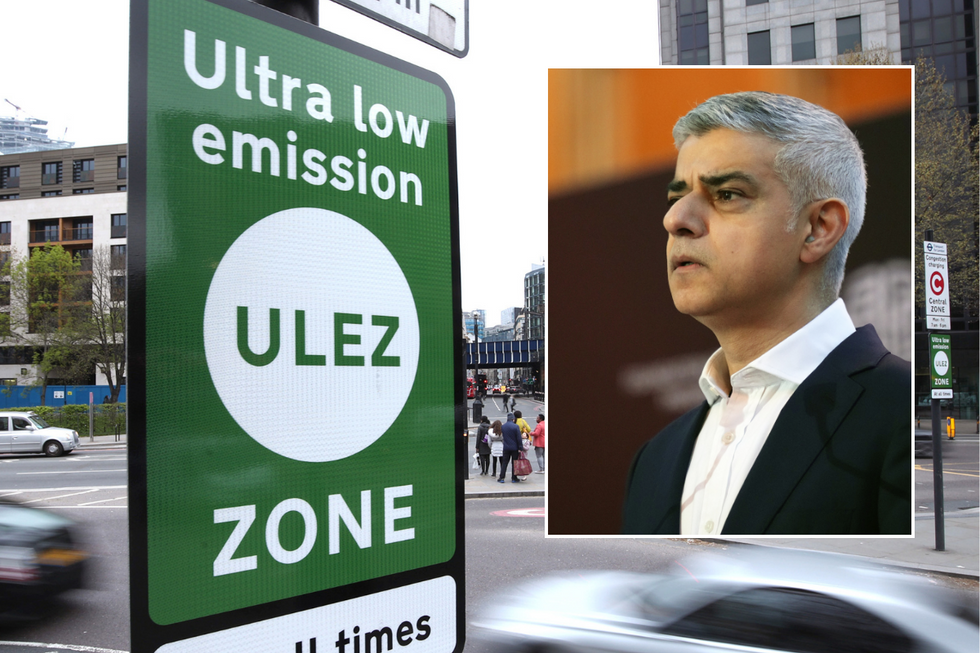 Sadiq Khan has continually praised the Ulez scheme | PA
Sadiq Khan has continually praised the Ulez scheme | PAOuter London boroughs emerged as the primary beneficiaries of the scheme, receiving 88 per cent of the distributed funding, with Croydon and Hillingdon recording the highest number of successful applications.
The programme, which ran for 20 months from January 2023, saw its initial £110million budget increase twice due to overwhelming demand. The Mayor expanded funding to £160million in August 2023 and subsequently to £210million in January 2024.
Eligibility criteria were progressively widened to include small businesses, Child Benefit recipients, and eventually all Londoners with non-compliant vehicles. Charities and eligible businesses could scrap or retrofit up to three vehicles.
More than 76,000 applicants participated in the scheme, making it larger than all other UK scrappage schemes supporting Clean Air Zones or Low Emission Zones combined.
---
The environmental impact has been substantial, the report found, with nitrogen oxide emissions from road transport now 36 per cent lower across London in 2024, saving approximately 3,400 tonnes annually.
This reduction was equivalent to roughly one year of emissions from all passenger car trips in Los Angeles.
The scheme's cumulative annual emissions savings include 160 tonnes of nitrogen oxides, 8.5 tonnes of particulate matter 2.5, and 33,400 tonnes of carbon dioxide. The CO2 reduction alone matches the annual emissions of 1,000 homes.
Over six years from 2019 to 2024, the Ulez has prevented an estimated 813,000 tonnes of carbon emissions compared to a scenario without the scheme. This equates to nearly three million one-way passenger flights between Heathrow and New York.
LATEST DEVELOPMENTS:
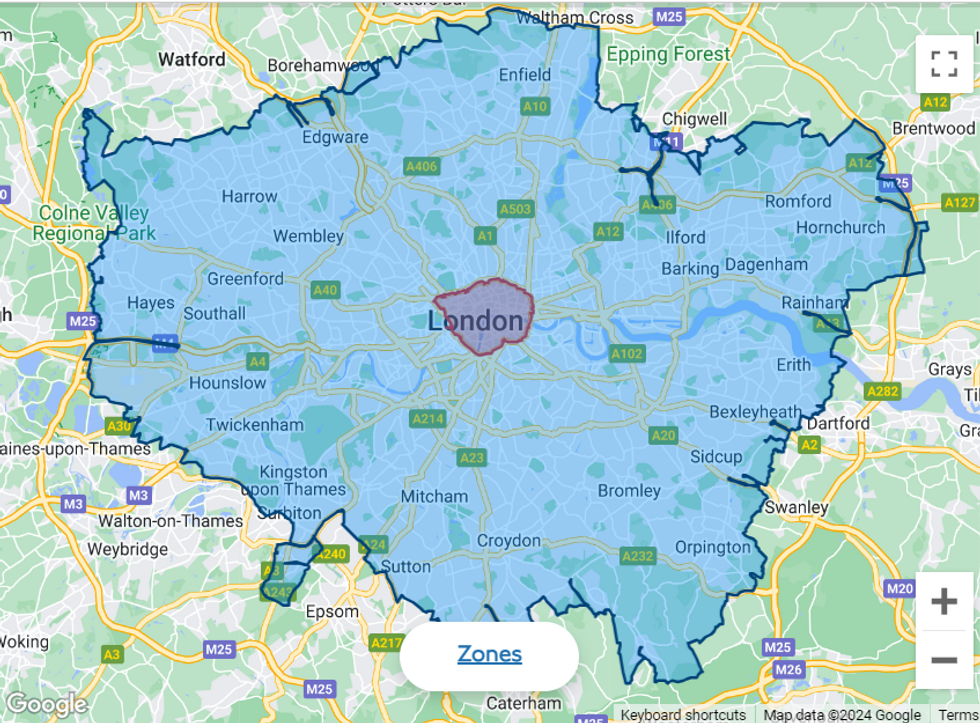 Ulez was expanded to cover all London Boroughs in 2023 | TfL
Ulez was expanded to cover all London Boroughs in 2023 | TfLCommenting on the success, Khan said: "I am proud that the scrappage scheme - the biggest in the UK - has supported so many Londoners to switch to cleaner, greener forms of transport.
"This has made a huge difference to our air quality, and also encouraged many Londoners to take up more sustainable ways of travelling, which will make a lasting difference to our capital.
"London's air quality is now improving at a faster rate than the rest of England, and we've also made a difference overseas, with hundreds of vehicles supporting the medical and humanitarian efforts in Ukraine."
Khan pledged to continue taking "bold, world-leading action" to improve London's air quality and build "a better, fairer, greener capital for all."
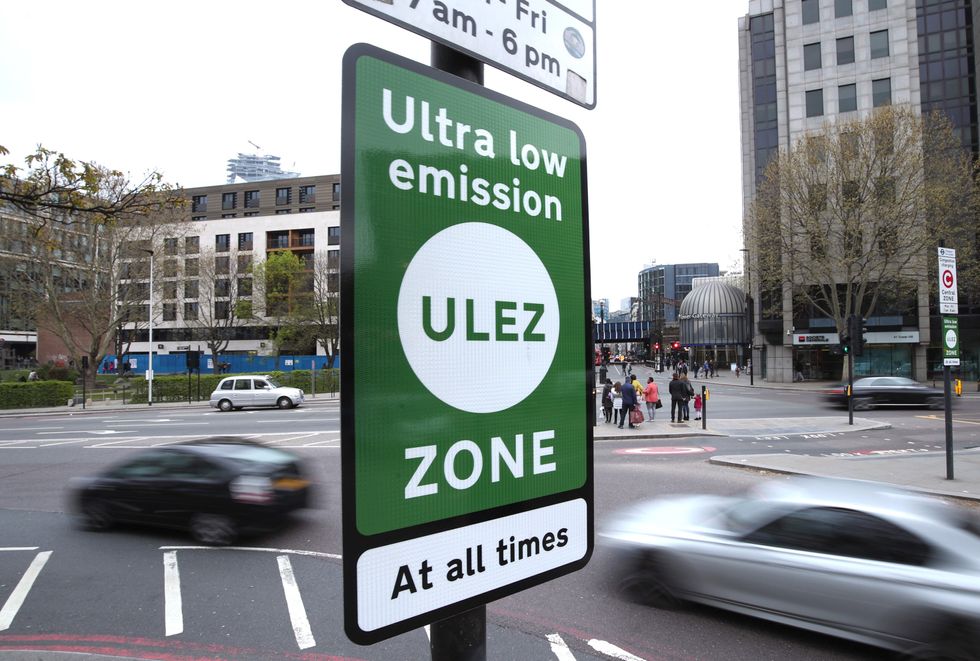 The Ulez is the UK's largest emissions-based charging zone | PA
The Ulez is the UK's largest emissions-based charging zone | PAThe scheme also helped facilitate 684 vehicle donations to support medical and humanitarian efforts in Ukraine, with the vehicles repurposed abroad.
Iryney Makarukha from British Ukrainian Aid expressed "immense gratitude" to London residents and the Mayor for making these donations possible.
She shared: "These vehicles are helping save lives by supporting paramedics, hospitals, and organisations dealing with the devastating consequences of the war. Thank you so much for this tremendous contribution.”
Beyond vehicle removal, the programme also helped encourage sustainable travel habits, with data showing 18 per cent of car and motorcycle recipients reporting increased walking, while 12 per cent increased bus use. A further 29 per cent of participants chose not to spend their grant on replacement vehicles.


